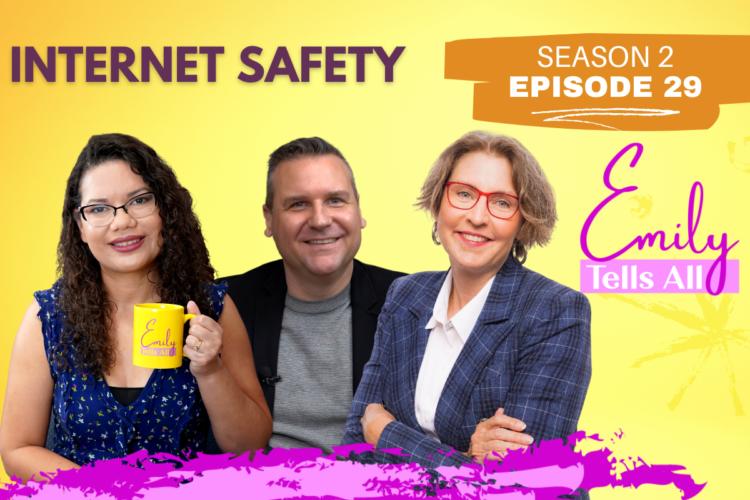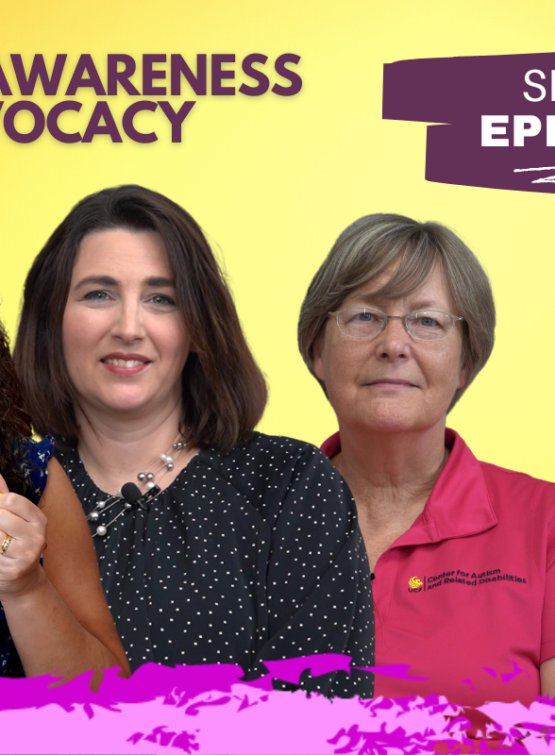AIR DATE JULY 14, 2022
Title: Internet Safety
Learn what privacy threats exist online and how you can keep you and your family safe.
Guests and Locations
National Cybersecurity Alliance, Interim Executive Director – Lisa Plaggemier
Cybercrime Support Network, Vice President of Community-Based Programs – Mark Batchelor
Internet Security Starts with Choices at Home
I recently had conversations with cybersecurity experts to discuss how we can all be safer online. According to information from ID Theft Resource Center, in 2021, there were nearly 1,300 data breach events. That number reflects a 68% increase from 2020 figures.
Lisa Plaggemier, who serves as the Interim Executive Director of the National Cybersecurity Alliance, says that cybercrime and internet safety are complex and scary topics. “The Internet was never designed to be secure,” she told me. “It was designed for the free flow of information, and technology has definitely enhanced our lives and society.”
“Unfortunately,” she continued, “there are people out there who would use technology to do us harm, to steal money or things you can turn into cash.”
Mark Batchelor is the VP of Community Based Programs for the Cybercrime Support Network. He says cybersecurity goes beyond monetary desires to something more personal for many people. “I’m thinking about things like cyberbullying, harassment, or romance scams. Cyber harassment could lead to physical, real-life violence.”
How Can People Protect Themselves Online?
Batchelor says that everyone can take some simple steps to create a more secure digital footprint. “The first step is using two-factor, or multifactor authentication,” he said. “That’s when you have something other than your password to log in, so it’s your fingerprint, facial ID, or a text on your phone with a code.”
Plaggemier suggests that your perspective should be the first thing to consider. “Don’t presume it can’t happen to you,” she told me. “Don’t think you don’t have anything worth stealing because… you might have access to something that is worth stealing. Oftentimes, people get hacked because someone is trying to get through you to somebody else.
Batchelor and Plaggemier offer other simple solutions, such as watching out for malicious links, knowing how to recognize phishing attempts, and using a password manager to avoid replicating account access across multiple sites.
Kids Have More Access Than Parents Often Realize
With Internet access almost everywhere today, it makes more sense to have parents and kids work together to establish healthy online boundaries.
Plaggemier says that education, not restriction, is the path to having a safer online experience for kids. “I think its misguided to presume that if I don’t give my kid access to technology or I take away their phone… that somehow, I’m going to protect them. Kids will get their hands on a desktop at the library, an iPad at school, or their friend’s phone to access their accounts and content.”
Batchelor agrees. “I think it boils down to two things: awareness and communication. You have to be aware of what your kids are doing online, what apps they’re using, what games they’re playing, because the games can connect people to strangers out there. That opens the door to all kinds of trouble.”
More information about protecting yourself online, including as a small business owner, is available on the FTC.gov website. You can also check staysafeonline.org and scamspotter.org for ideas that help to recognize a problem before it becomes one.



